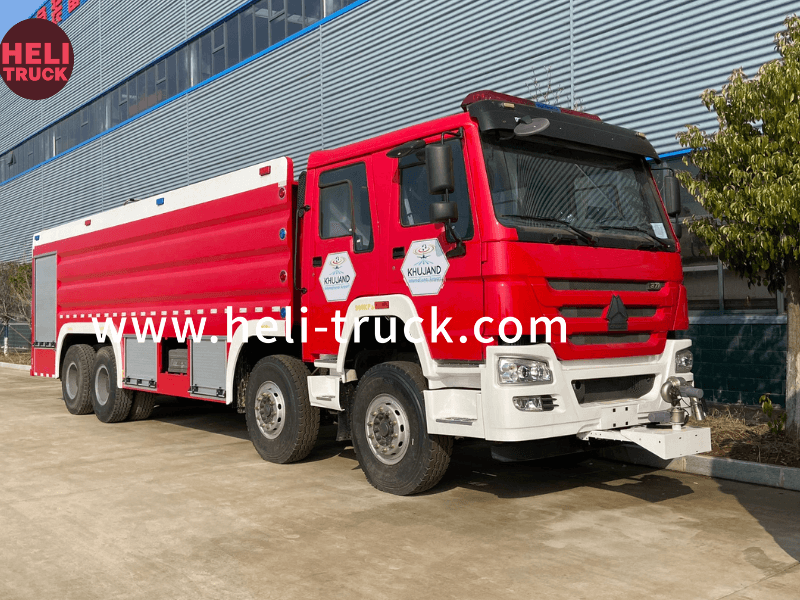Introduction
Water tank trucks play a crucial role in the transportation of non-potable water for various purposes. These specialized vehicles are designed to efficiently transport large volumes of water to areas where access to clean and safe water is limited. In this article, we will explore the importance of water tank trucks in non-potable water transportation, their design and features, the challenges they face, and the future trends in this industry.
Importance of Water Tank Trucks in Non-Potable Water Transportation
Water tank trucks are essential for transporting non-potable water for a wide range of applications. Non-potable water refers to water that is not suitable for human consumption due to its quality, such as water used for irrigation, construction, firefighting, dust suppression, and industrial processes. Water tank trucks are used to transport non-potable water to construction sites, agricultural fields, and other locations where access to water is limited.
One of the key advantages of using water tank trucks for non-potable water transportation is their mobility and flexibility. These vehicles can access remote areas and deliver water where it is needed most. Water tank trucks are also cost-effective compared to other methods of water transportation, such as pipelines or water tankers. They can transport large volumes of water in a single trip, reducing the overall transportation costs.
Design and Features of Water Tank Trucks
Water tank trucks are specially designed to transport and deliver non-potable water safely and efficiently. These vehicles are equipped with a tank that can hold varying capacities of water, ranging from a few hundred gallons to several thousand gallons, depending on the size of the truck. The tanks are typically made of durable materials such as stainless steel or fiberglass to ensure longevity and prevent contamination of the water.
Water tank trucks are also equipped with pumps and hoses to facilitate the loading and unloading of water. The pumps are used to fill the tank with water from a water source, such as a lake or river, and to empty the tank at the destination site. The hoses are used to connect the truck to the source of water and to deliver water to the desired location.

In addition to the tank, pumps, and hoses, water tank trucks are equipped with safety features to ensure the safe transportation of water. These features may include emergency shut-off valves, spill containment systems, and reflective markings for visibility on the road. Some water tank trucks are also equipped with GPS tracking systems to monitor the location of the vehicle and ensure timely delivery of water.
Challenges in Water Tank Truck Non-Potable Water Transportation
Despite their importance, water tank trucks face several challenges in non-potable water transportation. One of the main challenges is the limited availability of water sources in certain regions. In areas experiencing drought or water scarcity, finding suitable sources of non-potable water for transportation can be challenging.
Another challenge is the maintenance and upkeep of water tank trucks. These vehicles require regular cleaning and sanitization to prevent the growth of bacteria and algae in the tank. Failure to maintain the tank properly can lead to contamination of the water and pose health risks to the users.
Furthermore, water tank trucks are vulnerable to accidents and spills during transportation. Improper handling of the vehicle or equipment failure can result in leaks or spills of water, causing environmental damage and potential hazards to public health. To mitigate these risks, water tank truck operators must adhere to strict safety guidelines and regulations.
Future Trends in Water Tank Truck Non-Potable Water Transportation
As the demand for non-potable water transportation continues to grow, the water tank truck industry is evolving to meet the changing needs of its customers. One of the emerging trends in this industry is the use of advanced technology to improve the efficiency and safety of water transportation. Related Site are now equipped with sensors and monitoring systems to track water levels, pressure, and temperature in real-time.
Another trend is the adoption of environmentally friendly practices in water tank truck operations. Many companies are investing in eco-friendly vehicles that run on alternative fuels, such as natural gas or electric power, to reduce carbon emissions and minimize their impact on the environment. Additionally, some water tank trucks are now equipped with water treatment systems to purify non-potable water before delivery, making it suitable for certain applications.
Conclusion
Water tank trucks play a critical role in the transportation of non-potable water for various purposes. These specialized vehicles are designed to efficiently deliver large volumes of water to areas where access to clean and safe water is limited. Despite the challenges they face, water tank trucks continue to be an essential part of the water transportation industry, providing a cost-effective and reliable solution for delivering water to those in need. By embracing new technologies and sustainable practices, the water tank truck industry is poised to meet the evolving demands of a growing population and ensure the efficient transportation of non-potable water for years to come.
